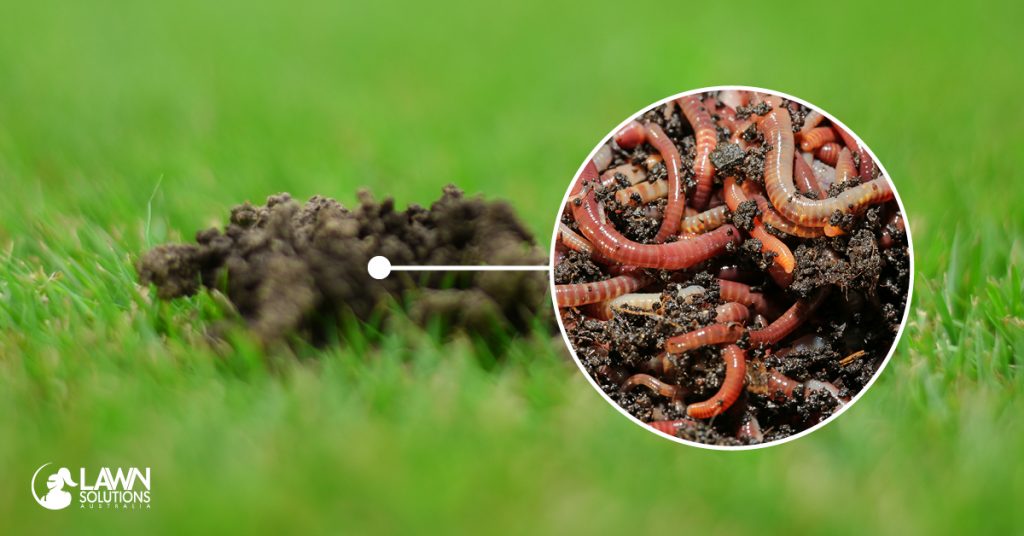Unknown Facts About North Carolina Worms
Unknown Facts About North Carolina Worms
Blog Article
Some Ideas on North Carolina Worms You Need To Know
Table of ContentsThe 5-Second Trick For North Carolina WormsGet This Report on North Carolina WormsMore About North Carolina Worms8 Simple Techniques For North Carolina WormsThe Definitive Guide for North Carolina Worms
(https://lnk.pblc.app/pub/145287bf4bba37)Nature can take lots of years to compost or biodegrade natural issue. The process of thermophilic composting can speed this procedure up to an issue of days or weeks.The bacteria need wetness, oxygen, and a food source to flourish. When transforming no more creates warmth with adequate moisture and oxygen, the thermophilic microbes have mostly died-off and the mesophilic germs (70-100 F.) take control of the decay procedure. Your garden compost is ending up being a lot more secure. Pet Feed. The thermophilic heating in fact achieves several advantages.
This is a little simplified however mainly exact. Worm composting takes place in the mesophilic range (70-90 F.) The worm bed linen is a combination of various carbon products. The worm bin temperature level is regulated by adding only percentages of nitrogen materials at one time. In some cases the nitrogen materials are also pre-composted (thermophilic) prior to introducing to a worm bin.
The 5-Minute Rule for North Carolina Worms

Some instances: Bed linen temperature levels, wetness degrees, kind of composting worms, kinds of bed linens materials, various food sources, and length of time before spreadings harvest all have an impact on the quality of spreadings (or do not have thereof). By far, these "controlled conditions" have the biggest influence on the general quality of the worm castings.
Particular plants are recognized to expand far better with various kinds of castings. The benefits of worm castings get to much beyond helping our plants grow.
North Carolina Worms for Beginners
This includes living organic matter, dead raw material, and very dead organic issue (humus). Let me throw out a few terms and see if any of these recognize to you: deteriorated, farmed-out, erosion, nitrogen run-off, algae blossoms in lakes, wind erosion, silt, chemicals, chemical fertilizers, irrigation, water contamination, fish eliminates, dying, reduced insect populaces, mineral depletion, much less nutrient-dense foods, dry spell problems, loss of topsoil, compaction, and I can go on forever.
Perhaps it is time for a modification? To recognize the importance of Healthy and balanced dirt, let's analyze what Un-healthy dirts bring to the table. Unhealthy dirt is a significant contributor to environment change.

Some Known Factual Statements About North Carolina Worms
Worm castings are near neutral pH. They can make acidic soils extra neutral or alkaline dirts much more acidic. Spreadings are granular and assist to make oygenation room in the dirt.
Worm spreadings hold water like a sponge. Worm spreadings assist to form "dirt aggregates" which alleviate compaction issues in your dirt.
Worm castings applications along with organic compost products can boost sandy or clay soils profoundly. No discussion of the benefits of worm spreadings is complete without addressing the NPK classification.
This is ALL they give. Right here is the trouble. If I intend to offer my worm spreadings as a fertilizer (which they are), my state regulatory authorities require me to have an NPK designation on my tag. Most worm spreadings visit this page will certainly evaluate 1-0-0 on an NPK examination. Chemical fertilizers are not in a plant-available type.
6 Easy Facts About North Carolina Worms Explained
That is why there is always a lot extra with chemical fertilizers. They also do not offer lots of things that healthy plants require to grow. (plant hormones, humic acids, etc) Nonetheless, worm castings work totally in different ways than chemical fertilizers. They are not even in the same class. It is an apples and oranges contrast and complete lack of knowledge on the component of the fertilizer regulators.
You add worm spreadings to your dirt and the lifecycle of the microbes produce nitrogen, phosphorous, and potassium for your plants. They also generate plant hormonal agents, humic acids, and other things. However, they create this in a plant-available type, so your plant does not call for that much. It is a two-way symbiotic partnership with your plants and the soil.
This laboratory test outcome is most likely trivial if you are a gardener. However, if you are a farmer of a certain plant (ie.tomatoes, cannabis, and so on) and recognize certain kinds of worm spreadings function well for you, it is important information. My recommendation is to work with a worm castings manufacturer and request for the laboratory examination results.
Report this page